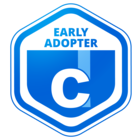Hello!
My company has this year looked into monitoring how much time, each month, is being spent by users in our platform. Identifying just who has logged on isn’t much of an issue, but we need to figure out how much time, total, our users are spending interacting with training materials in order to provide better optics on the ROI over our old training site. What we have done thus far is not providing accurate results, however, and I am hoping one of you kind folks might have a better idea of where and how we can get this information!
What we are doing now:
Currently we are utilizing the Users - Courses report to pull data, with the following filter:
• Enrollment Date [After / Absolute]- 11/3/2023
• Usage Statistics - Training Material Time (sec)
While this will reflect accurately all users who were enrolled after this date it will not reflect users who have passed the course or even briefly touched the training materials this month but were enrolled into it 4 months ago.
Attempted Solution:
I attempted a different pull, utilizing the same report, but including the last access date as a reference point. I also used the following filter:
• All Users
This would pull every user’s interaction with the site. I then used a Dated If formula in order to identify who has accessed something in the last 30 days, and deleted all others, hoping to reveal only those users who have actively signed in and actively used a training material in some point within the last 30 days. However, this has a flaw where it will show all of their training time, even if it’s older than 30 days.
Final Thoughts:
Effectively, I have been unable to locate a method to report only on what has been interacted within the last 30 days that also reflects accurately the total numbers of hours spent on training materials within the same time frame.
Any ideas on how this could be accomplished, even if it’s API use, would be appreciated.
Best answer by alekwo
View original










